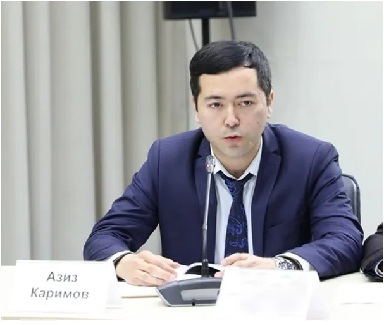Uzbekistan and Kuwait: complementary partnership in development

Uzbekistan and Kuwait: complementary partnership in development
TASHKENT, February 16. /Dunyo IA/. The leading researcher at the Institute for Strategic and Regional Studies under the President of Uzbekistan (ISRS) Aziz Karimov commented to the Dunyo IA on the development of Uzbek-Kuwaiti relations:
- The cooperation between Uzbekistan and Kuwait has reached a new level in recent years. The strengthening of relations between the two countries is driven by a number of factors, including the similarity of their foreign policy concepts, shared approaches in international organizations, alignment of economic development strategies, as well as mutual interest in expanding bilateral economic ties.
The geographic location of the two countries also plays an important role: Uzbekistan is located in the heart of Central Asia, while Kuwait occupies a strategically important position in the Middle East. This positioning not only facilitates the strengthening of bilateral relations but also, by fostering industrial cooperation, allows for the expansion of trade ties with third countries.
From an economic standpoint, Uzbekistan and Kuwait complement each other. Uzbekistan, as the second-largest economy in Central Asia, demonstrates steady and high growth rates, while Kuwait, with its substantial oil reserves and powerful financial resources, ranks among the leading global economies. This combination of factors creates a solid foundation for further deepening cooperation and opens up broad prospects for joint projects across various sectors.
These factors also emphasize the scale and potential of cooperation between Uzbekistan and Kuwait.
Over the past five years, trade turnover between Uzbekistan and Kuwait has increased fivefold. Currently, seven enterprises with Kuwaiti capital operate in Uzbekistan. However, this does not fully reflect the economic potential of both sides. In 2023, Kuwait’s trade in goods and services with other countries amounted to $164 billion, while Uzbekistan’s figure reached $63 billion. The agreement signed in 2024 to simplify trade processes could be a significant step in increasing trade dynamics.
Kuwait has significant investment potential. The Kuwait Investment Authority ranks second in the Gulf and fifth globally regarding financial capabilities. Its current assets are estimated at nearly $1 trillion. Another fund, the Kuwait Fund for Arab Economic Development, is a prestigious organization that provides concessional grants and loans to developing countries.
In turn, Uzbekistan is becoming a significant investment destination with vast opportunities. Since 2017, official Tashkent has attracted nearly $80 billion in foreign investments. From this perspective, Uzbekistan could be a promising direction for Kuwaiti investors.
In 2022, nearly half (47%) of Kuwait’s service imports were related to tourism. Kuwaiti tourists spent over $10 billion abroad. With its rich cultural heritage, Eastern science, and historical centers of Islamic culture, Uzbekistan could become an important tourism destination for Kuwaiti travelers.
Both Uzbekistan and Kuwait are rapidly introducing modern digital technologies into their economies. Kuwait’s information and communication technology market currently exceeds $22 billion, while Uzbekistan’s digital economy is worth nearly $4.5 billion. Therefore, Kuwait could share its extensive experience in successfully integrating digital infrastructure into the economy with Uzbekistan. This aligns with the priority goals of the Digital Uzbekistan 2030 Strategy.
Kuwait’s agricultural capabilities are limited. The country imports nearly 94% of its food needs. With its high potential in food production, Uzbekistan could be a promising partner in ensuring Kuwait’s food security.
The most effective development of this cooperation can occur through the establishment of joint production enterprises. Moreover, Kuwait has significant experience in this area, having financed 45 agricultural projects in 21 African countries in recent years to ensure food security.
In conclusion, it is worth noting that cooperation between Uzbekistan and Kuwait in the economic and innovation sectors will be a key factor in ensuring the continued and sustainable development of both countries. Strengthening bilateral relations will not only enhance their interaction but also provide a new impetus for the development of interregional cooperation as a whole.





